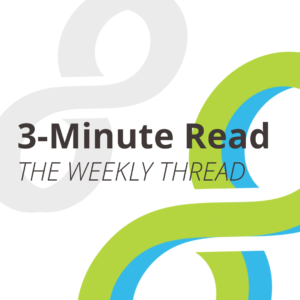Crossing Careers: Movement Between Sectors in University-Industry Partnership Roles
Oct. 10, 2023 —If you work in corporate or academic engagement, tech scouting or tech transfer, or in a research administration role at the intersection of university-industry partnership engagement, chances are your career ladder was more like a winding path than a straight line. These professionals often begin their careers doing research themselves.
—If you work in corporate or academic engagement, tech scouting or tech transfer, or in a research administration role at the intersection of university-industry partnership engagement, chances are your career ladder was more like a winding path than a straight line. These professionals often begin their careers doing research themselves.
It’s even more common for them to have both corporate and academic (and sometimes government) experience on the resume. Broad experience is a plus in these connector roles; crossing sectors can be a huge advantage as it brings a deeper understanding of the goals, priorities, and sector-specific processes and offers an edge in negotiation and partnership-building.
Survey skills
Diving into this phenomenon, UIDP fielded a survey in 2021, “Career Paths and Transitions for Professionals in Cross-Sector Partnership Roles.” We asked respondents what skills they found transferable between sectors. Responses varied by role, but business acumen, scientific credentials, and soft skills are considered valuable in any sector. Specifically, respondents indicated that networking and collaboration skills were highly transferable, as well as more general business skills like time management and strategic planning. Other respondents pointed to science and technical skills as valuable across sectors in addition to communication, business development, and dealmaking. Other valuable skills identified were writing, teamwork, and persistence.
Expert examples
UIDP’s emagazine, U-I Connector Career Paths, highlights the stories of more than a dozen professionals whose careers crossed sectors. Peter Ireland, for example, moved from academia to industry and back to academia, bringing with him deeper insights from the experience. Ireland worked as a researcher at the University of Oxford before taking a research fellowship at Rolls Royce. Four years later, Ireland returned to academia to lead the Oxford Thermofluids Institute, continuing his long relationship with Rolls Royce in a sponsored research role. Ireland pointed to the move to industry as one of the best things he ever did—an opportunity to gain experience he could only gain in industry research. Ireland developed a network of connections within Rolls-Royce and intimate knowledge of its research goals and practice, bolstering his position at Oxford.
Another example is Grace Wang, who now serves as the president of Worcester Polytechnic Institute. Wang started in industry, working in a research lab at IBM, and then pursued an opportunity to serve in the National Science Foundation (NSF) Engineering Directorate. Wang was passionate about the intellectual stimulation at NSF and the ability to steer future research directions but was intrigued when a recruiter contacted her about a position in academia at the State University of New York. Wang said she expected a slower pace in academia but discovered that research administration was multi-faceted and gave her the essential proximity to faculty, students, and staff to understand their motivations and challenges better.
Why it matters
No one goes to college to earn a degree as a university-industry connector; most professionals in the field learned on the job, which is one reason they are in such high demand today. The best bring a wealth of knowledge and experience to inform their work. The ability to navigate different sectors broadens career opportunities for U-I partnership professionals and equips them with transferable skills valuable in any sector or organization. With business acumen, scientific credentials, and soft skills, individuals in cross-sector partnership roles can build lasting research partnerships to further discovery and innovation. Enabling the movement of professionals across career sectors ensures the strength of future research partnerships.
We want to hear from you. Have you moved sectors over the course of your career? Let us know on our LinkedIn profile.



